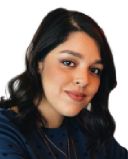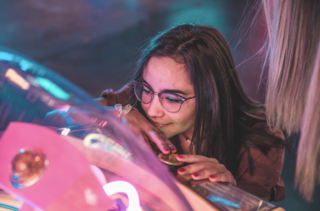
Health
4 Ways to Be an Emotional Scientist
Self-curiosity and genuine wonder can have a strong mental health impact.
Posted May 18, 2020

I jumped on the "Brené Brown wagon" when I was studying my BA in Psychology back in 2010. I remember stumbling upon her TED Talk about vulnerability and feeling almost instant relief. Finally, I thought, here is someone who for the first time honors my "sensitivity" – a trait that, up until that point, many people had pointed out as a flaw.
My admiration has grown throughout the years as I've closely followed her books, courses, articles, conversations, and now, thankfully, her podcast, Unlocking Us. Each episode is full of valuable "vulnerability nuggets" that, undoubtedly, strengthen my unlearning journey. Each and every one of them has offered, up until this point, an important lesson in my life – both as a person as well as a psychologist.
As a lover of words and lexicography, it's not uncommon for me to gravitate towards phrases or emotional metaphors that enrich my work. And that's probably why I was so amazed by the Unlocking Us episode with Dr. Marc Brackett, the founding director at the Yale Center for Emotional Intelligence.
In it, Brené Brown and Dr. Brackett spoke about the importance of building emotional intelligence in our youth. In order to do this, Dr. Brackett suggests we must all strive to become "emotional scientists" instead of "emotional judges."
What's the difference?
Emotional scientists, according to Dr. Brackett:
- Research, ask questions, and are curious (in a non-judgmental way) about their own emotional states and the emotions of those around them.
- Ask from a place of empathy and compassion.
- Are active listeners and practice emotional regulation.
Emotional judges, on the other hand:
- Assume, criticize, and judge their own emotional states and the emotions of those around them.
- Often believe there's a "correct" and "incorrect" way in which people "should" feel.
- Don't practice self-curiosity or self-awareness about their own mental health.
How to become an emotional scientist?
It's not surprising that emotional scientists also develop important skills such as decision-making, creativity, problem-solving, leadership, assertive communication, among others. So, how exactly can we help raise the next generation of emotional scientists? And, by doing that, how can we shy away from our inner "emotional judges" in order to become more curious?
- Let's name the emotion. We must allow space to identify, honor, and name what we're feeling, as well as provide that same space for our loved ones. Naming our emotions is the first step towards emotional regulation and, in a judgment-free zone, can pave the way for the co-existence of a full range of other emotions.
- Active listening without guilt, judgment nor shame. Sometimes, we are so eager to help other people solve their problems (as well as our own), that we meet their emotional expression as something we need to fix. When, in reality, active listening can be more than enough of what our loved ones might need.
- Validate their emotions. After identifying and listening to what the other person has to say about their feelings, honor their experience. A simple "I understand why you might feel that way" can go a long way. And this type of response plays a key role in the development of empathy.
- Ask them what they need from you. Scientists ask, make hypotheses, put them to test, and either confirm or deny them. This same experience can occur with feelings. Let's give the other person the benefit of the doubt of telling us what they need.
Being an emotional scientist is a new skill for many of us, particularly if we have grown up in a world that uses judgment and/or shame as its main weapons. But this new skill might be exactly what we need if we want to help heal the world and turn it into a safer, more compassionate, and kinder place to live in.

